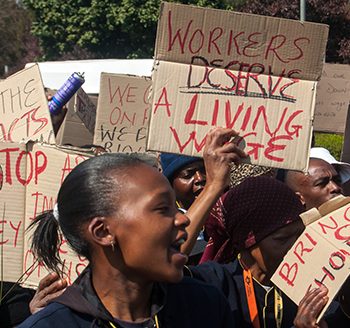By providing paid, comprehensive leave, societies promote family well-being, gender equality, and the radical notion that raising humans might actually be important work.
Parental leave: that quaint concept where new parents are allowed to recover from the small task of creating life without having to juggle conference calls, diaper blowouts, and existential exhaustion simultaneously. In some parts of the world, this is considered standard. In others—especially the “land of the free” where freedom apparently doesn’t extend to not checking work emails from the maternity ward—it’s treated like a luxury. Because nothing says “pro-family values” like telling a new mother to get back to work before the hospital bracelet even comes off.
Babies are tiny, adorable tyrants who demand constant attention, nourishment, and love. They don’t care about your KPIs or quarterly reports. Their needs are non-negotiable, and the first weeks and months of life are critical for bonding, development, and, you know, basic survival. Yet, in countries without comprehensive parental leave, parents are expected to function like sleep-deprived superheroes—minus the cool costumes and with significantly more spit-up.
New parents face physical recovery, hormonal rollercoasters, and the mental health risks of postpartum depression and anxiety. Adding job insecurity, financial stress, and the pressure to perform professionally to that mix isn’t just cruel; it’s counterproductive. Stress hormones don’t make better employees; they make burnout inevitable. Congratulations, you’ve optimized for misery.
Meanwhile, countries with robust parental leave policies—like Sweden, Norway, and Iceland—treat this time not as a perk but as a right. The results? Lower rates of postpartum depression, healthier child development, and, shockingly, happier, more productive workers when they return. It’s almost as if treating people like humans instead of productivity machines leads to better outcomes. Who knew?
Parental leave isn’t just about mothers. When fathers and non-birthing parents have access to paid leave, it promotes gender equality at home and in the workplace. It challenges the outdated notion that caregiving is “women’s work,” creating space for more balanced partnerships and breaking down the “breadwinner vs. homemaker” dichotomy that traps everyone in rigid roles. Plus, dads bonding with their babies isn’t just heartwarming—it’s developmentally beneficial for the child and emotionally enriching for the parent. Win-win-win.
Critics argue that paid parental leave is too expensive, as if the economy will collapse under the weight of people spending time with their newborns. But studies show the opposite. Paid leave reduces employee turnover, increases retention, and improves job satisfaction. Businesses save money on recruitment and training costs, and economies benefit from healthier, more stable families. In other words, it’s not just morally right—it’s fiscally smart.
And let’s not overlook the broader social benefits. Paid parental leave contributes to higher birth rates in countries facing demographic decline, reduces child poverty, and improves educational outcomes. When parents can afford to care for their children, those children grow up healthier, happier, and more likely to succeed. It’s not rocket science; it’s basic cause and effect.
The absence of parental leave, on the other hand, creates a cascade of negative effects. Parents return to work too soon, leading to chronic stress, health problems, and reduced productivity. Babies miss out on critical bonding time, which can affect attachment and emotional development. Families are forced to rely on expensive, inadequate childcare options, stretching budgets and straining relationships.
In the U.S., the Family and Medical Leave Act (FMLA) provides unpaid leave—a policy so underwhelming it’s like offering someone a parachute made of tissue paper. Unpaid leave assumes you can afford to take time off without a paycheck, which is a laughable assumption for most working families.
Globally, the U.S. stands out—not in a good way. It’s one of the few high-income countries without a national paid parental leave policy, keeping company with economic powerhouses like Papua New Guinea. Meanwhile, Estonia offers over a year of paid leave at near full salary. The message is clear: some societies value families; others value GDP more than human well-being.
Paid leave reduces stress, improves mental health, and strengthens family bonds. It creates space for recovery, reflection, and the messy, beautiful process of becoming a parent. It acknowledges that while work is important, life is more than deadlines and profit margins. Moreover, it sends a cultural message about what matters. When societies invest in parental leave, they’re saying that caregiving is valuable, that families deserve support, and that people are more than economic units. It shifts the narrative from “productivity at all costs” to “people first,” which, ironically, leads to healthier economies because healthy, supported people are more productive.
The ripple effects extend to children, who benefit from the early presence of their parents—not just for feeding and diaper changes, but for emotional security. Secure attachment in infancy is linked to better mental health, social skills, and resilience later in life. It’s not about coddling; it’s about building a foundation for lifelong well-being.
Critics will say, “But what about businesses?” To which the answer is: what about them? Countries with paid parental leave haven’t descended into economic chaos. In fact, they often rank higher in measures of economic competitiveness, innovation, and quality of life.
Parental leave is about respect—respect for the labor of caregiving, for the physical and emotional realities of parenthood, and for the idea that people deserve more than just the right to work. They deserve the right to live fully, to love deeply, and to be present for life’s most important moments without sacrificing their livelihoods.
Therefore, under Folklaw:
Comprehensive, paid parental leave shall be guaranteed for all new parents, regardless of gender, employment status, or family structure. Leave shall cover prenatal, postnatal, and adoption-related care, with provisions for both primary and secondary caregivers.
Employers will be required to provide paid leave without risk of job loss or retaliation, funded through a combination of employer contributions and public support. Leave policies will promote gender equality by encouraging equal participation of all parents. Healthcare, mental health support, and job security will be integrated into parental leave programs to support the well-being of families.






Discussions
There are no discussions yet.